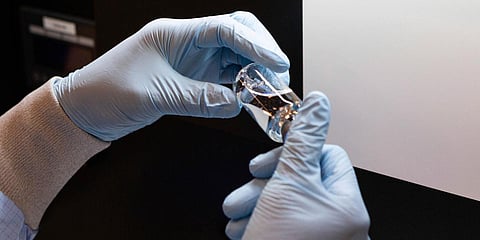WHO trial shows remdesivir has no significant benefit for COVID-19 patients
NEW DELHI: A large 30-country Solidarity Trial led by the World Health Organization has concluded that none of the four repurposed drugs that it tested — remdesivir, hydroxychloroquine, lopinavir and interferon — do not have any significant benefits for Covid-19 patients.
The interim analysis related to the drugs, tried in 405 hospitals, has now been reported in the medical pre-print server MedRxiv before being formally published in a journal and is set to have major implications for all countries battling the pandemic, including India.
The trial arms related to HCQ and lopinavir were earlier discontinued when interim findings showed no benefit.
The updated analyses, which presents the largest study so far on anti-ebola drug remdesivir shows no impact on reduction in mortality, in the overall patient group compared to prevailing standard of care nor was benefit noted in any patient subset.
The findings are also a reminder that no medicine, except for steroids such as dexamethasone and methylprednisolone, have so far been found to help serious Covid-19 patients.
These have also put a major question mark on the utility of the repurposed drug remdesivir for the infectious disease which has been a sought-after drug since the beginning of the pandemic.
Remdesivir, as of now, is permitted for emergency use authorisation in moderate to severe Covid-19 patients as part of the national clinical management protocol in India.
Interferon too did not demonstrate any benefit in reducing deaths compared to controls.
“Since the main objective of treatments of the hospitalised patients is to reduce the risk of death, the search for effective treatment will continue through rigorous evaluation of evidence gathered from large randomised clinical trials,” said Public Health Foundation of India president Dr K Srinath Reddy who is also the member executive of the steering group of the WHO trial.
“The trial will continue to examine other therapeutic interventions which hold promise, such as monoclonal antibodies,” he added.
The US based Gilead Sciences, which holds the proprietary rights over the drug meanwhile questioned the study design and the interim results.
“We are aware that initial data from the Solidarity Trial has been made public prior to publication in a peer-reviewed journal,” it said in a statement. “The emerging data appear inconsistent with more robust evidence from multiple randomized, controlled studies published in peer-reviewed journals validating the clinical benefit of Veklury (remdesivir).”
“We are concerned that the data from this open-label global trial have not undergone the rigorous review required to allow for constructive scientific discussion, particularly given the limitations of the trial design,” the statement added.
About the trial
As part of the trial, 11,266 adults were randomized, with 2750 allocated remdesivir, 954 HCQ, 1411 lopinavir, 651 interferon plus lopinavir, 1412 only interferon, and 4088 no study drug.
The RCT has shown that of the 2743 patients given drug remdesivir, 301 died, while 303 of the 2708 patient not given the medicine also succumbed to the infectious disease.
“No study drug definitely reduced mortality (in unventilated patients or any other subgroup of entry characteristics), initiation of ventilation or hospitalisation duration,” concluded the study.
Dr Anupam Singh in Ghaziabad who has been treating Covid-19 patients for last several months pointed out that the message from the trial is that antivirals will work only at viremia stage (when the virus enters the bloodstream) and not at inflammatory stage or post 6-7 days of disease onset.
Most of the patients in India seek hospitalisation, only in the inflammatory stage.
He also pointed out that while there is discordance among the US and Solidarity trials regarding remdesivir, there is a signal of benefit in all patients given remdesivir in low risk stage such as those not on ventilator or high flow oxygen.
“Remdesivir is likely to be useless once patient presents in high risk stage,” he said.
An earlier, smaller study from the US which came out in May had said that while remdesivir had no impact on mortality due to Covid-19, it cut the duration of hospitalisation by about 4 days in patients.

